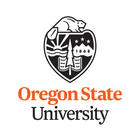- News and articles
- Find usIDP AustraliaIDP BahrainIDP BangladeshIDP CambodiaIDP CanadaIDP ChinaIDP EgyptIDP GhanaIDP Hong KongIDP IndiaIDP IndonesiaIDP IranIDP JordanIDP KenyaIDP KoreaIDP KuwaitIDP LebanonIDP MalaysiaIDP MauritiusIDP Middle EastIDP NepalIDP New ZealandIDP NigeriaIDP OmanIDP PakistanIDP PhilippinesIDP Saudi ArabiaIDP SingaporeIDP Sri LankaIDP Taiwan, ChinaIDP ThailandIDP TurkeyIDP UAEIDP VietnamIDP Corporate
- Social
- English
- Where we operate
- Courses
- Scholarships
- IELTS
- About IDP
- Student Essentials
- News and articles
- Find us
- Find us
- Find nearest IDP offices
- IDP Australia
- IDP Bahrain
- IDP Bangladesh
- IDP Cambodia
- IDP Canada
- IDP China
- IDP Egypt
- IDP Ghana
- IDP Hong Kong
- IDP India
- IDP Indonesia
- IDP Iran
- IDP Jordan
- IDP Kenya
- IDP Korea
- IDP Kuwait
- IDP Lebanon
- IDP Malaysia
- IDP Mauritius
- IDP Middle East
- IDP Nepal
- IDP New Zealand
- IDP Nigeria
- IDP Oman
- IDP Pakistan
- IDP Philippines
- IDP Saudi Arabia
- IDP Singapore
- IDP Sri Lanka
- IDP Taiwan, China
- IDP Thailand
- IDP Turkey
- IDP UAE
- IDP Vietnam
- IDP Corporate
- Social
- Language Switcher
- IDP Education /
- Colleges and Universities /
- United States /
- Oregon State University - I... /
- Bachelor of Science in Anim...


Location
United States
Qualification
Bachelor Degree
Fees
USD37290
(2025)
Duration
8 Semester(s)
Next intake
09 June 2025
Entry Score
6.0
IELTSCourse info
Increasing demands for livestock and poultry products by a rapidly expanding human population mean potential employment for well-trained individuals in such areas as farm, ranch, feedlot operation, meat, poultry, egg and milk processing, meat grading with the USDA, Federal Cooperative Extension Service, county and 4-H work, sales or technical employment with commercial feed, seed, and chemical companies and pharmaceutical houses, agricultural loan officer, government agency positions at local, state and federal levels, the Peace Corps, animal welfare auditing, as well as in journalism, mass media, and public policy. The expanding support structure for companion animals has created a growing job market for graduates in areas such as animal behavior consultant, veterinary technician (animal nurse), and business management. In addition, students become prepared to go on to advanced studies in animal sciences, veterinary medicine, and education.
- Scholarships View all scholarships
- Internships
Course fees are indicative and should be used as a guide. to get an accurate price.
Duration: 8 Semester(s)
Fees: USD37290
| Intake | Location |
|---|---|
| Winter (January), 2026 | Eugene |
| Summer (June), 2026 | Eugene |
| Summer (June), 2025 | Eugene |
| Fall (September), 2025 | Eugene |
| Fall (September), 2026 | Eugene |
| Winter (January), 2027 | Eugene |
| Spring (March), 2027 | Eugene |
| Summer (June), 2027 | Eugene |
| Spring (March), 2026 | Eugene |
Entry requirements for Oregon State University - INTO USA
ACTE (ACT English) - 21
Two English composition courses (Writing 121+) with grades C- or better or one English composition and one Speech Communication course (Communication 111+) with grades C- or better, all from a US university.
IGCSE O or A Level English with a grade of C or better (provisional results not accepted)
IB Diploma: Language A - Language and Literature (HL) with a minimum score of 5
Official transcripts.
3.0 GPA High school diploma or IB Diploma with minimum overall score of 26 or IGCSE 5 subjects with a 3.0 average using NCAA scale.
IB Diploma Language A Language and Literature HL with a minimum score of 5.
AP English L and C minimum score of 3.
Language Requirements -
iBT TOEFL - 70
IELTS - 6.0
Level 5 Academic English completion
PTEA - 48
Application Deadline
The application deadline isn't available Speak to an IDP counsellor for more detailed information
Further information
If you aren't eligible for the above entry requirements, you might ant to explore pathway options at Oregon State University - INTO USA. If you want to find out more, speak to our counsellors.
What our students think
We’ve haven’t received any reviews for this institution yet.
Recommended for you
- Advanced Certificate
- Indianapolis , United States
- Next intake:08/2025
- Entry Score: IELTS 7.0
- USD34241 (2025)
- THE World Ranking:301
- Advanced Certificate
- Denver , United States
- Next intake:06/2025
- Entry Score: IELTS 6.5
- USD18615 (2025)
- THE World Ranking:351
- Advanced Certificate
- Ambler , United States
- Next intake:08/2025
- Entry Score: IELTS 6.0
- USD16956 (2025)
- THE World Ranking:601
- Advanced Certificate
- Charlotte , United States
- Next intake:08/2025
- THE World Ranking:351
- Advanced Certificate
- Philadelphia , United States
- Next intake:08/2025
- Entry Score: IELTS 6.0
- USD16956 (2025)
- Advanced Certificate
- Online , United States
- Next intake:05/2025
- Entry Score: IELTS 5.5
- USD6960 (2025)
- Advanced Certificate
- Flagstaff , United States
- Next intake:08/2025
- Entry Score: IELTS 6.0
- USD14780 (2025)
- THE World Ranking:601
- Advanced Certificate
- Lubbock , United States
- Next intake:05/2025
- Entry Score: IELTS 6.5
- USD24451 (2025)
Your action plan
Step 1
Shortlist your courses
Choose the best three courses you’re most likely to pursue.
Step 2
Check your eligibility
Get an instant in-principle offer for courses with the IDP FastLane tag.
Step 3
Apply through IDP Live
Fill out the form once and use it to apply to multiple courses.
How does IDP FastLane work?
With the FastLane 'Offer in Principle', you'll know in minutes if you'll be accepted!
Select an institution and course
Create your academic profile
Submit your application for an 'Offer in Principle'
Your chosen institution(s) will send you a decision in minutes!
Get ready to apply with an expert counsellor




